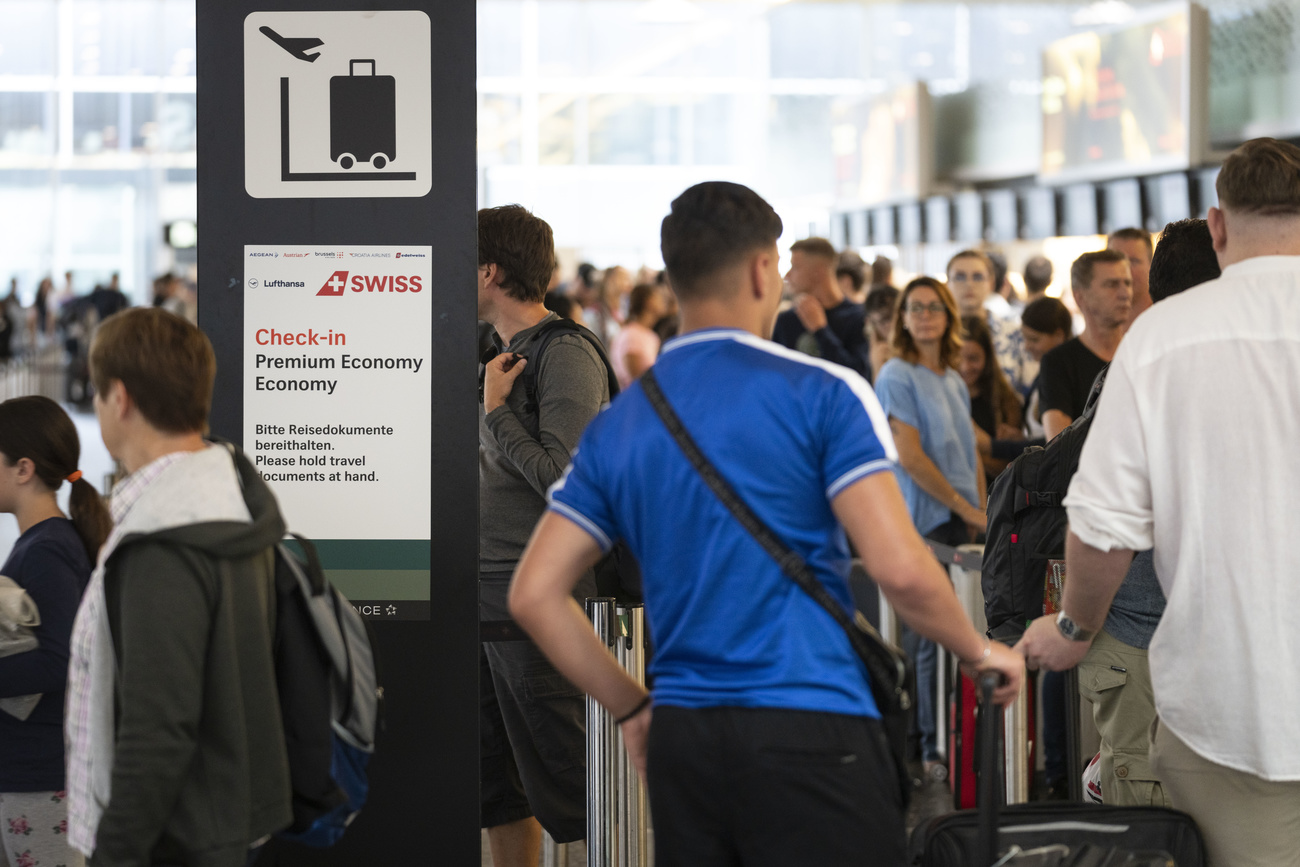Charity wants amnesty for illegal immigrants

Illegal immigrants who have been in Switzerland for more than four years should be granted an amnesty, following the example set by other European countries.
The Swiss charity, Caritas, said on Tuesday that the current system of dealing with people on a case-by-case basis was simply not working.
The charity said the lives of the country’s estimated 70,000-180,000 illegal immigrants and the Swiss economy would benefit if they were granted legal status on a collective basis.
But only 500 illegal workers had been granted residency since September 2001, said Jürg Krummenacher, the charity’s director.
According to Caritas, illegal immigrants are mostly employed in private households, the catering industry and on construction sites where they are paid minimal wages and are vulnerable to poor working conditions.
Caritas said the very fact that they had found employment in Switzerland illustrated how vital they were to the Swiss economy, which needed to fill jobs in certain sectors.
The Swiss authorities have so far refused to entertain the idea of a blanket amnesty, despite groups of immigrants occupying churches and other public buildings two years ago.
Krummenacher says he doesn’t hold out much hope that Caritas’ proposal will come to fruition, especially given the growing popularity of the rightwing Swiss People’s Party, which takes a hard stance against immigration.
“But, on the other hand, Italy did accept a similar proposal even though it has a rightwing government,” he said.
Criteria
In addition to the minimum four-year residency requirement, the Catholic organisation suggested two other criteria that illegal immigrants should fulfil before being granted legal status.
They should show they have no criminal convictions and prove that they have sufficient financial means to support themselves, either through a job or help from relatives.
Krummenacher stressed that any amnesty should not be extended to asylum seekers whose applications had been rejected.
But he said it was time for a new approach towards those who worked without the proper papers.
“People working illegally should not be treated as criminals,” he said.
Another recommendation is for the introduction of strict measures, discouraging employers from taking on illegal workers.
Europe
The report referred to the example set by countries including Italy and Belgium, which have proved successful in tackling the exploitation of illegal immigrants.
Since the 1970s the number of people granted legal status in these countries has been on the rise.
But, Krummenacher says, this does not mean that these countries have attracted increasing numbers of illegal immigrants.
“Italy has regularised immigrants on a collective basis several times in the last 20 or 30 years, and hasn’t seen an increase in illegal immigrants,” he said.
The charity warned that the opening of the Swiss job market to EU nationals – a right that is being negotiated with the ten new EU member countries – should be accompanied by an easing of restrictions on less well-qualified workers who are not citizens of the EU.
This would minimise the danger of creating even more illegal immigrants, it said.
swissinfo, Faryal Mirza
There are an estimated 70,000 to 180,000 illegal immigrants in Switzerland.
Caritas says most illegal immigrants are vulnerable to poor working conditions.
Switzerland has so far refused to put in place a blanket amnesty.

In compliance with the JTI standards
More: SWI swissinfo.ch certified by the Journalism Trust Initiative










You can find an overview of ongoing debates with our journalists here . Please join us!
If you want to start a conversation about a topic raised in this article or want to report factual errors, email us at english@swissinfo.ch.